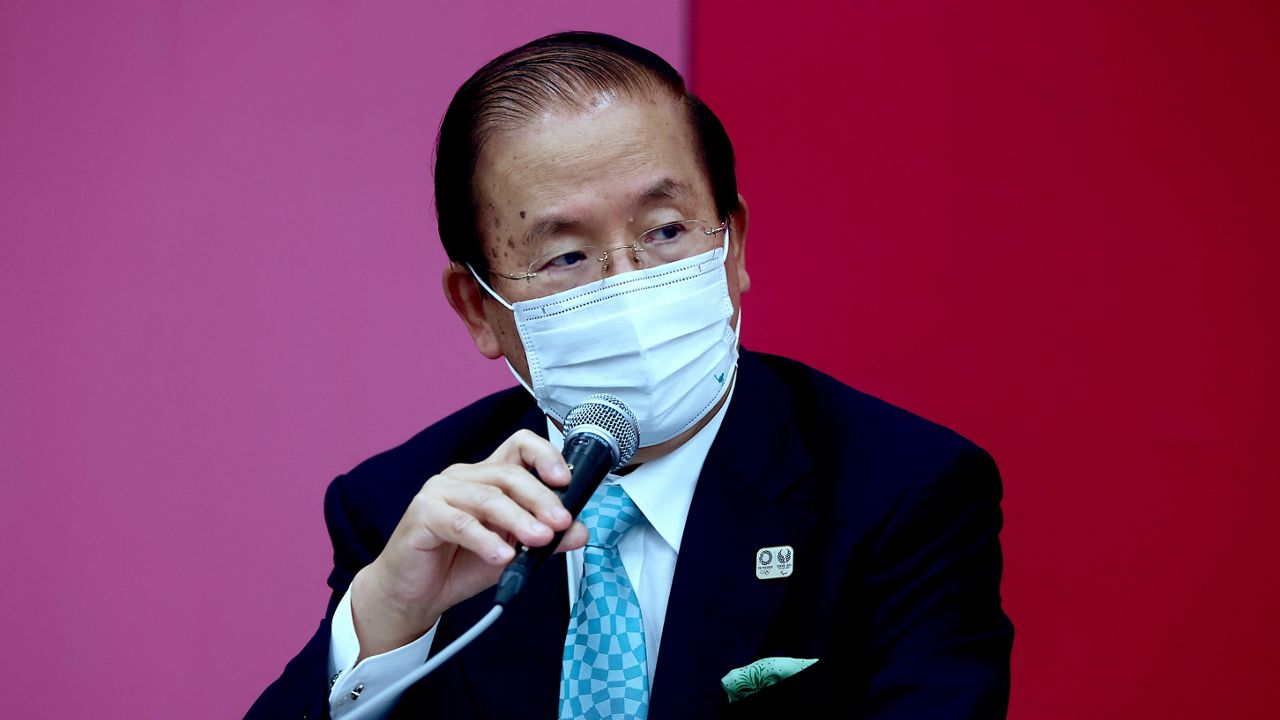Just days before the Tokyo Olympics are set to begin, the chief of the Tokyo 2020 organizing committee did not rule out a last-minute cancellation of the games due to COVID-19 concerns.
"We cannot predict what the epidemic will look like in the future," Tokyo 2020 CEO Toshiro Muto said Tuesday. "So as for what to do should there be any surge of positive cases, we’ll discuss accordingly if that happens."
"During the last five-party talk, it was clearly stated we’ll continue to monitor the coronavirus situation, and a five-party talk will be held if necessary," Muto continued, adding: "At this stage, the coronavirus situation might get worse or better, so we will think about what to do when the situation actually arises."
"We will continue discussions if there is a spike in cases," Muto said.
Organizers announced Tuesday that 71 people accredited for the Toyko 2020 games have tested positive for COVID-19, including U.S. gymnastics team alternate Kara Eaker, WNBA star Katie Lou Samuelson, who was set to compete on the U.S. women's 3x3 basketball team, and Czech beach volleyball player Ondřej Perušič. A new case among 13 added to the official total Tuesday includes a “games-concerned personnel” – a category including team officials and sports staffers – in Tokyo who is not staying at the village.
Some events – softball and women’s soccer – begin Wednesday, two days before the Opening Ceremony is scheduled to kick off on Friday. The Tokyo games, which were set for last summer, were already delayed due to the COVID-19 pandemic, but will still be known as the 2020 games. There will not be any fans allowed in attendance at the events.
Health experts in Japan have questioned allowing so many international visitors for the games, which end on Aug. 8. COVID-19 cases are on the rise in Japan, and Tokyo is in a state of emergency that will last through the end of the Olympics due to the surge in cases.
Japan's Prime Minister Yoshihide Suga told International Olympic Committee members in a closed-door meeting Tuesday that the world needs to see that Japan can stage a safe Olympics.
"The world is faced with great difficulties," Suga said, adding: "We can bring success to the delivery of the Games."
"Such fact has to be communicated from Japan to the rest of the world," Suga continued. "We will protect the health and security of the Japanese public."
Prime Minister Suga's office said Monday more than 21% of Japan’s population of 126 million people has been inoculated. Japan's vaccination program has lagged behind the pace of other developed nations.
International Olympic Committee President Thomas Bach praised vaccine manufacturers Pfizer and BioNTech for "a truly essential contribution" to the Tokyo 2020 games, saying that their cooperation leading to "85% of Olympic Village residents and 100% of IOC members present" at Tuesday's meeting "have been either vaccinated or are immune."
"Billions of people around the world will follow and appreciate the Olympic Games," Bach said in praise of host nation Japan, insisting the games will send a message of peace, solidarity and resilience. "They will admire the Japanese people for what they achieved."
Japan has nearly 850,000 confirmed COVID-19 cases and more than 15,000 deaths, according to data from Johns Hopkins University.
The Associated Press contributed to this report.



